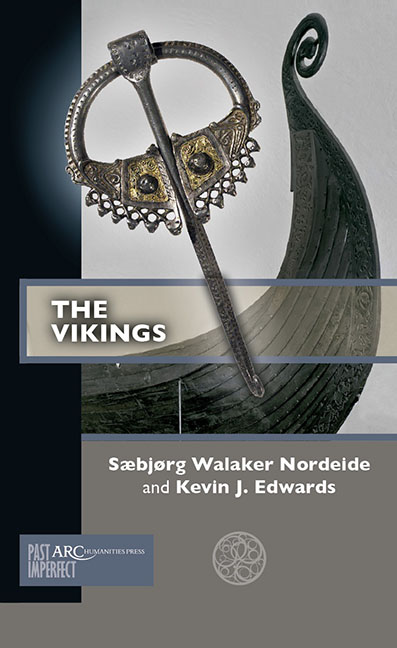Chapter 1 - The Vikings
Published online by Cambridge University Press: 20 November 2020
Summary
The history of the Vikings may be assembled from many sources—documents, archaeology, place names, environmental evidence, genetics, and more. Written sources, such as the English Anglo-Saxon Chronicle record raids by “Norsemen” from near the end of the eighth century CE/AD. Apart from sporadic mentions of such intruders from many sources in the ensuing centuries, the first comprehensive accounts of the Vikings and their activities date primarily after ca. 1200. Given the lateness of such records, they cannot necessarily be considered as totally reliable, although some of the content, including that of the Icelandic sagas, may find apparent confirmation in older documents and subsequent research findings. Archaeological data are time-and place-specific, but they are without words and may be difficult to interpret in terms of their full biographies. Place names often change with time. Environmental sources can be informative regarding landscape impacts and socio-economic activities, while isotopes and genetics may contribute detailed life histories of people, crops, and domesticated animals. Combining all these sources allows a depiction of the history of the Vikings.
Who Were the Vikings?
We may choose to try to explain a number of phenomena during the Viking period, involving concepts such as “Vikings,” “Viking Age,” and “Scandinavians.” These terms are typically associated, but how? Based on Old Norse evidence, it has been argued that “in the Viking Age a Scandinavian was not a Viking simply because he was a Scandinavian.” But was he a Scandinavian if he was “a Viking”? And was the Viking only a “he”?
The term Viking was first used in Old English sources, and referred to robbers and coastal marauders. In Scandinavia (taken to refer to Norway, Sweden, and Denmark; Figure 1) the term has its origins in nineteenth-century Sweden. The etymology of the word viking is explained in different ways, none of them certain: it may refer to the word wic (a camp or trading place), or to the Norse vik (a bay). It has been suggested that the word is derived from vík(j)a—“move or step aside, turn to the side.” This would mean that a rower, when his boat was not under sail, would step aside when tired and his place would be taken by another.
- Type
- Chapter
- Information
- Vikings , pp. 1 - 12Publisher: Amsterdam University PressPrint publication year: 2019



